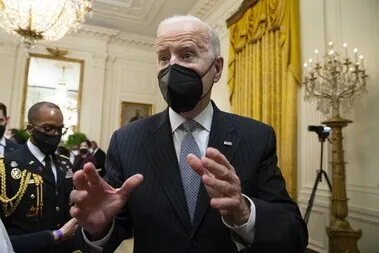hankyoreh
Links to other country sites 다른 나라 사이트 링크
[Correspondent’s column] Korea and Ukraine: Half a world away, but not so unalike


After World War II, the biggest worry for Western Europe and the US was a potential Soviet invasion. They thought they would be helpless to resist the Red Army if it rolled westward. When the US developed tactical nuclear weapons and deployed them in Western Europe, it was seeking to counter the massive strength of the Soviet army, including its tanks.
When that decades-long fear was defanged at the end of the Cold War, the victors exulted in what they regarded as the “end of history.” Now that Russia is noisily proclaiming its return, should we be talking about the “resurrection of history”?
Let’s consider what implications the earth-shaking Ukraine affair has for South Korea. It might seem rash to compare these two countries, which are so far apart, geographically speaking. There’s also a big gap between their national power, including the size of their economies.
Ukraine is threatened with invasion from its neighbor Russia, but the biggest threat facing South Korea is probably North Korea’s nuclear weapons. We might also mention pressure from China as it confronts the US in East Asia. Officially speaking, Korea and China are “strategic cooperative partners.”
While Ukraine is receiving aid from the US and Western Europe, it’s not a member of NATO and therefore can’t count on a collective security guarantee. Compare that with Korea, which is in a military alliance with the US.
But there are still meaningful implications for Korea, given its geopolitical vulnerability. First is the fact that the great powers have reverted to a more overt approach to international politics. This marks a return to the big conflicts and contradictions that had been obscured for a generation by the US-led unipolar order and the “war on terror.” That includes the US and China’s hegemonic struggle.
Countries are rightfully disturbed and unsettled when powerful neighbors make historical claims to their territory. Russian President Vladimir Putin said that Russians and Ukrainians are “one people” in an essay titled “On the Historical Unity of Russians and Ukrainians” that was published last July. Some saw Putin’s claims — which stretch back across a thousand years of history — as an attempt to rationalize the forceful annexation of Ukraine.
Putin’s claims are reminiscent of when Donald Trump said that “Korea actually used to be a part of China” following a meeting with Chinese President Xi Jinping in 2017. It’s unclear whether Trump was repeating Xi’s words verbatim. Regardless, it’s generally presumed that Trump must have heard something along those lines.
The peculiar developments surrounding Ukraine raise thorny questions about whether one’s friends are actually on one’s side. American officials including President Joe Biden have been stoking a sense of crisis, as if Russia were on the verge of invading Ukraine. But the Ukrainian government has called for restraint and said the US has played up the danger unnecessarily.
While visiting Ukraine on Tuesday, UK Prime Minister Boris Johnson made inflammatory comments, saying that a Russian invasion would meet bloody resistance and that Russian mothers would regret sending their sons to the front.
It’s easy to see Ukraine as a pawn on the chessboard when its self-proclaimed friends are pushing hardline rhetoric while the Ukrainian government is asking them to remain calm. That suggests the real goal of the US and its allies isn’t protecting weak countries but blocking the rise of Russia and that they may push the situation in a direction undesirable to Ukraine.
If the US seeks to treat Korea as another pawn as it responds to the rise of China and North Korea’s nuclear program, it could create problems more serious than simply neglecting its duties as an ally.
South Korean President Moon Jae-in said during a message on Liberation Day in 2017 that nobody can decide to take military action on the Korean Peninsula without Seoul’s consent. He made the remark as rumors of war reared their head after Trump threatened to respond to North Korea’s bellicose posture with “fire and fury.” Moon was declaring that Korea would not be a pawn.
Korea should keep a close eye on the Ukraine affair as change comes to the Eurasian order.
Please direct questions or comments to [english@hani.co.kr]

Editorial・opinion
![[Column] Trump’s protection racket [Column] Trump’s protection racket](https://flexible.img.hani.co.kr/flexible/normal/500/300/imgdb/original/2025/1031/6817618980064942.jpg) [Column] Trump’s protection racket
[Column] Trump’s protection racket![[Editorial] Devil will be in the details of Korea-US trade deal [Editorial] Devil will be in the details of Korea-US trade deal](https://flexible.img.hani.co.kr/flexible/normal/500/300/imgdb/original/2025/1030/3317618102763424.jpg) [Editorial] Devil will be in the details of Korea-US trade deal
[Editorial] Devil will be in the details of Korea-US trade deal- [Editorial] Lee must stick to guiding principles in tariff negotiations
- [Editorial] Korea must stick to its principles while working with US, Japan
- [Guest essay] What’s new about the “new Middle East”?
- [Editorial] Asia Future Forum brings bright minds together to explore democracy’s future
- [Column] Russia and China’s golden ticket to destabilizing the dollar
- [Correspondent’s column] Martial law comes for the United States
- [Column] The end of the road for NewJeans, or a new beginning?
- [Editorial] Korea must prepare for rough road ahead with Japan
Most viewed articles
- 1[Interview] Haecho knew she might die. Trying to bring aid to Gaza was worth the risk.
- 2China reminds South Korea of NPT obligations after Trump OKs nuclear submarine
- 3Real-life heroes of “A Taxi Driver” pass away without having reunited
- 4Revision of US-South Korea nuclear energy pact may not be far off
- 5[Editorial] The ex-first lady and president doth protest too much
- 6[Guest essay] What’s new about the “new Middle East”?
- 7Concessions by US and China are a stopgap, not a truce
- 8Former bodyguard’s dark tale of marriage to Samsung royalty
- 9[Column] Facing our fear of the “welfie” in “All of Us Are Dead”
- 10If Koreans deem it trendy, foreign tourists will come